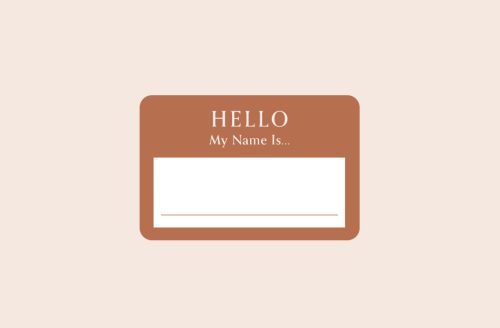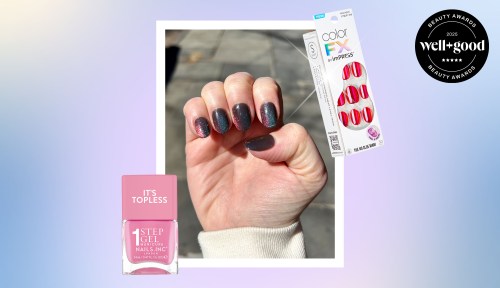It’s likely that long before California Senator Kamala Harris, who is Black and South Asian, became a nationally known political presence, people have been mispronouncing her name. In early August, in what was perhaps the most well-publicized fumbling of the name Kamala (it’s pronounced “Comma-la”), Fox News host Tucker Carlson refused to pronounce the recently announced Democratic vice-presidential nominee’s name correctly, even after political consultant Richard Goodstein corrected him. “I think out of respect for somebody who’s going to be on the national ticket, pronouncing her name right is actually kind of a bare minimum,” said Goodstein. The truth is it’s not just the “bare minimum” for treating Black, Indigenous, and people of color (BIPOC) who get nominated for public office with respect; it’s the bare minimum for talking to or about another human being, period.
Experts in This Article
Jennifer Dorman is a linguist and the senior instructional designer at the language-learning platform Babbel.
Co-founder of From Privilege to Progress
Name pronunciation is something that Michelle Saahene, activist, coach, and co-founder of From Privilege to Progress, has thought about a lot. Her last name, Saahene, often comes out of people’s mouths as “sa-HEEN” in America even though it’s true pronunciation puts emphasis on every single vowel. “In Ghana, my last name is Saahene. It’s like ‘saa-HEN-ay’—you pronounce both A’s and both E’s.” she says. This kind of microaggression, she says, is emblematic of the fact that so many white people shy away from asking those with non-European names how to honor the correct pronunciation.
Carlson’s blatant disrespect (he went on to call out Goodstein’s correction as an example of Democratic fragility) aside, when white folks—specifically people of a European ethnicity, mispronounce the names of people who have non-European ethnicities, it is never a simple oversight. As actor Uzo Aduba’s mother said to her when the actor wanted to change her name from “Uzoamaka” to “Zoe” for ease among her white peers, “if they can learn to say ‘Tchaikovsky’ and ‘Michelangelo’ and ‘Dostoyevsky,’ they can learn to say ‘Uzoamaka.’” The takeaway? Butchering a BIPOC person’s name has a lot more to do with racism in America than it does with how difficult it is to string together certain sounds.
What’s in a name? Tracing the linguistic tool—and how it has been wielded for racism and oppression
Names are the very foundation of linguistic communication. A world without them would be a very confusing place, says linguist Jennifer Dorman, senior instructional designer at the language-learning application Babbel. “Linguistically speaking, a name is what we use to refer to a person and provides a connection to someone’s unique identity,” says Dorman. “It is used as a term to identify a person legally and to address someone during a conversation, or signal to a person that they’re being spoken to, as to initiate communication between speakers.” In other words, you can’t define the word “name” without the word “identity”—and that’s why saying the name “Saahene” or “Uzoamaka” incorrectly goes far deeper than whatever syllables come out of a person’s mouth.
“Systemically, people of color and different ethnicities…have been subjected to linguistic discrimination. Particularly when applying for jobs, educational courses, or anything that must be screened by white-dominant societies.” —Jennifer Dorman, linguist
Pronouncing someone’s name incorrectly is one example of a form of oppression called linguicism—and Dorman says it’s running rampant in America today. “Systemically, people of color and different ethnicities in societies across the world have been subjected to linguistic discrimination,” she says. “Particularly when applying for jobs, educational courses, or anything that must be screened by white-dominant societies, in which white people and European-sounding names are more systematically privileged.”
In fact, a study conducted by The National Bureau of Economic Research found that white job applicants needed to submit about 10 resumes to different jobs before getting a call back; Black applicants, meanwhile, needed to send about 15. What these results point to is that BIPOC names are all too often filed away in the minds of white people in positions of power (Black people are disproportionately not hired or advanced into leadership positions) as being less qualified, less important, and less worthy—and that’s a huge problem.
This dynamic has forced many BIPOC throughout history to choose to use an identity, name, and pronunciation that’s comfortable for white people in this country, says Saahene. “When you think about America and who was allowed to migrate here with ease, it was all about assimilating into whiteness,” she says. “Anyone outside of that has to fit into that mold, so you have a lot of people from different countries who came to America understanding the prejudices that came along with their name—so they changed it.”
“When you think about America and who was allowed to migrate here with ease, it was all about assimilating into whiteness.” —Michelle Saahene, co-founder of From Privilege to Progress
These methods persist well into the 21st century—and walking the line between owning your identity and accommodating white comfort is one journalist Tasbeeh Herwees knows well. In 2014, she wrote a powerful piece about deciding to not allow others to mispronounce her name. She recalls this moment between herself and a classmate.
“Can I just call you Tess?”
I want to say yes. Call me Tess. But my mother will know, somehow. She will see it written in my eyes. God will whisper it in her ear. Her disappointment will overwhelm me.
“No,” I say, “Please call me Tazbee.”
It’s not always this simple, however. Later, Herwees acknowledges that, within the current system, BIPOC have to do what makes them feel well within the pre-existing system. “Our identities are important, but our survival and well-being are a little more important. People should be allowed to do whatever makes them feel safe and protected,” Herwees told The Washington Post in support of the choice to not correct the mispronouncing of one’s name.
And now, with more people working remotely during quarantine, the choice may come about all the more often as Zoom meetings make saying people’s names a necessity (whereas in-person meetings can allow for body-language cues to get the attention of someone). As writer Roxane Gay recently wrote in The New York Times in response to 25-year-old, nonbinary lesbian who desires to be called “Al” instead of Ali, it’s never too late or too much to ask a colleague to speak your name correctly. “I would simply send an email to your colleagues saying you prefer to be called Al. You don’t need to explain yourself unless you would like to. It’s an eminently reasonable request. Your preferred name, the name that best fits who you are, matters,” wrote Gay. And if you’re the person receiving that email, your adherence matters, too.
Next steps for moving forward and growing if you mispronounce someone’s name
One of the most valuable lessons that cancel culture has to offer is that being called out—because you pronounced someone’s name wrong or committed another microaggression—is an act of service. As Maryam Ajayi, founder and CEO of Dive in Well, pointed out during a recent Well+Good TALK: “If I don’t even have the energy to call someone out or bring something to their attention, that’s a dangerous place for me to be with a person, because that means I don’t care.” Meaning, if someone you’re talking to says “actually, that’s not how to say my name,” don’t get defensive. Just listen and make an active effort in the future to pronounce people’s names right before they have to correct you.
In the end, though, it’s not the job of BIPOCs to say, “Hey, you’re pronouncing my name incorrectly.” It’s a white person’s job to ask, “How should I pronounce your name? I want to get it right.” This is part of anti-racism work. If you can pronounce the name Karen, you can certainly take the time to learn a BIPOC stranger’s first and last name.
Sign Up for Our Daily Newsletter
Get all the latest in wellness, trends, food, fitness, beauty, and more delivered right to your inbox.
Got it, you've been added to our email list.











